Dear Colleagues, Dear Researchers,
GP2A (Group for the Promotion of Pharmaceutical chemistry in Academia) is delighted to announce that the 30th Annual GP2A Conference will take place at Trinity College, Dublin, Ireland, on August 24th to 26th 2022.
The final program is available here!
TO REGISTER, PLEASE USE THIS LINK: https://gp2a.s2.yapla.com/en/event-23826
Registration and fees: Registration can be achieved via the YAPLA platform. You can pay either by credit card or bank transfer. The fee includes the welcome reception on Wednesday evening, lunch on Thursday and Friday, and coffee breaks on all days. Fees are: PI, professor, lecturer, postdoc: €290; PhD, master students: €190. There is a €50 discount for GP2A members. If you are not already a member, and would like to join, please use the link below.
Link to join the GP2A: https://gp2a.org/index.php/gp2a-membership/
Accommodation Options for Conference are proposed here!
The abstract template and information for submission are available here!
Abstract submission and poster/communication will eventually not be considered if the main author is not fully registered as a participant to the conference by the closing date for abstract submission (10th June).
Poster submission: You can submit your poster abstract, using the dedicated Word template, and send it as a DOCX file to gp2a2022@gp2a.org by the 10th of June 2022.
Application for oral communication: The organising committee will select 11 attendees for oral communications during the conference. The deadline to pick this option is the 10th of June 2022. For those who will not be selected, please select a second option (poster submission or no communication) to notify the organising committee of your second choice.
The date for final registration (without abstract submission) is 31st July.
Any further enquiries can be directed to: gp2a2022@gp2a.org.
MOE Drug Design Workshop
Dr Darren Fayne and Shubhangi Kandwal will host a hands-on workshop for 30 GP2A attendees, providing an introduction into the ligand-based and structure-based drug design capabilities of the MOE software suite. We are grateful to the Chemical Computing Group for providing licenses. Please register in advance and note that places are limited.
When: 9am-12:30pm Wednesday 24th August 2022
Where: Level -2 PAC room, TBSI
For displaced researchers from Ukraine, support will be offered to attend the GP2A conference in August. If you have contacts from Ukraine who may be interested, please pass on this message and ask them to contact us at gp2a2022@gp2a.org.
Confirmed speakers
– Dr. James T. Hodgkinson, University of Leicester, UK
Exploring Heterobifunctional Molecules and Class-I Histone Deacetylase enzymes in Complexes
– Dr. Andrew Beekman, University of East Anglia, UK
New strategies for the identification and control of disease relevant protein-protein interactions.
– Prof. Matthias Gehringer, University of Tübingen, Germany
Targeting the Protein Kinases’ Cysteinome
– Prof. Anna Hirsch, Helmholtz Institute for Pharmaceutical Research Saarland, Germany
Addressing underexplored anti-infective targets
– Prof. Isabel Rozas, Trinity College Dublin, Ireland
Where targeting DNA can take you
– Prof. Rebecca Deprez-Poulain, Université de Lille, France
IDE and ERAP inhibitors discovered by KTGS and their use in therapeutics
– Dr. Kurt Hoogewijs, NUI Galway, Ireland
Structure-Affinity Relationship study of a potential therapeutic peptide for the treatment of MELAS
– Prof. Swen Hoelder, Institute of Cancer Research, UK
A tricycle journey to in vivo degraders of the oncogenic transcription factor BCL6
– Prof. Christa Elisabeth Müller, University of Bonn, Germany
Targeting membrane proteins involved in purinergic signalling – important players in inflammation, immunity and cancer
CVs in Brief…
| Dr. James T. Hodgkinson, University of Leicester, UK | James Hodgkinson is a lecturer in Organic Chemistry and Chemical Biology at the Leicester Institute of Structural and Chemical Biology (LISCB) and School of Chemistry, University of Leicester. James completed his undergraduate degree in Chemistry at Queens University Belfast and went on to complete his doctoral studies under the joint supervision of Professor David Spring (Department of Chemistry) and Dr Martin Welch (Department of Biochemistry), University of Cambridge. After a Junior Research Fellowship at Trinity College, Cambridge James was appointed to Lecturer at the University of Leicester in 2016. His current research interests are in the design and synthesis of heterobifunctional molecules to modulate Class-I Histone Deacetylase (HDAC) enzymes implicated in haematological cancers and other diseases, as well as chemical probes to aid structural studies of the protein-protein interactions within Class-I HDAC corepressor complexes. |
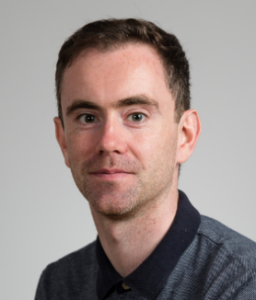 |
|
| Dr. Andrew Beekman, University of East Anglia, UK | Andrew obtained his PhD from the Research School of Chemistry at the Australian National University in Canberra, working on the discovery and synthesis of bioactive natural products from mushrooms used by the tribes of Papua New Guinea. In 2014 he worked at the University of British Columbia, Vancouver Canada as an Endeavour Research Fellow, before joining the School of Pharmacy at the University of East Anglia in 2015. As a post-doctoral researcher at UEA Andrew designed and developed new techniques to identify leads for protein-protein interactions and targeting ultrapotent payloads to cancer specific receptors. In 2019 Andrew founded a research group at the University of East Anglia, where the team investigates new methods for targeting protein-protein interactions. Current research projects look at controlling interactions in immune checkpoints, telomerase and transcription factors. The group uses peptide and small molecule synthesis to design chemical biology tools to control interactions specifically, allowing for a better understanding of their molecular mechanisms in disease. |
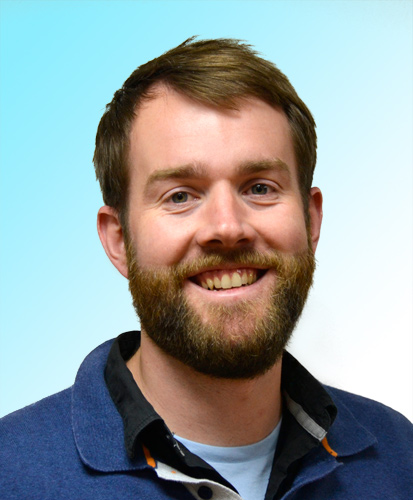 |
|
| Prof. Matthias Gehringer, University of Tübingen, Germany | Matthias Gehringer studied chemistry at the Karlsruhe Institute of Technology (KIT), the Ecole Nationale Supérieure de Chimie de Montpellier (ENSCM), and the University of Heidelberg. He obtained his Ph.D. from the University of Tübingen where he worked on reversible and irreversible protein kinase inhibitors. As a postdoctoral researcher at the Swiss Federal Institute of Technology (ETH) Zürich, he focused on the total synthesis of mycolactones and on targeted antibiotic–protein conjugates. In 2019, he was appointed assistant professor for medicinal chemistry at the Institute of Pharmaceutical Sciences, University of Tübingen. Since 2020, he is an associate PI in the Cluster of Excellence “Image Guided and Functionally Instructed Tumor Therapies (iFIT)” at the University Hospital and Faculty of Medicine, University of Tübingen. His research in the areas of medicinal chemistry and chemical biology mainly focuses on covalent and non-covalent protein kinase inhibitors and on novel covalent targeting approaches. |
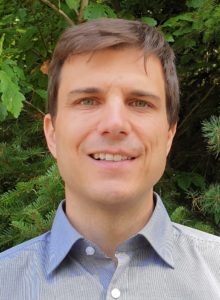 |
|
| Prof. Anna Hirsch, Helmholtz Institute for Pharmaceutical Research Saarland |
Prof. Dr. Anna K. H. Hirsch obtained her M. Sci. from the University of Cambridge and received her Ph.D. from the ETH Zurich in 2008 under Prof. F. Diederich. Subsequently, she joined the group of Prof. J.-M. Lehn at the Institut de Science et d’Ingénierie Supramoléculaires (ISIS) in Strasbourg as an HFSP postdoctoral fellow, before taking up a position as assistant professor at the Stratingh Institute for Chemistry at the University of Groningen in 2010 where she was promoted to associate professor in 2015. In 2017, she became head of the department “Drug Design and Optimization” at the Helmholtz Institute for Pharmaceutical Research Saarland (HIPS) and full professor at Saarland University. Her work focuses on target-based anti-infective drug discovery, recognised by numerous prizes such as the Innovation Prize for Medicinal Chemistry of the GdCh/DPhG or the the EFMC Young Medicinal Chemist in Academia runner-up Prize. |
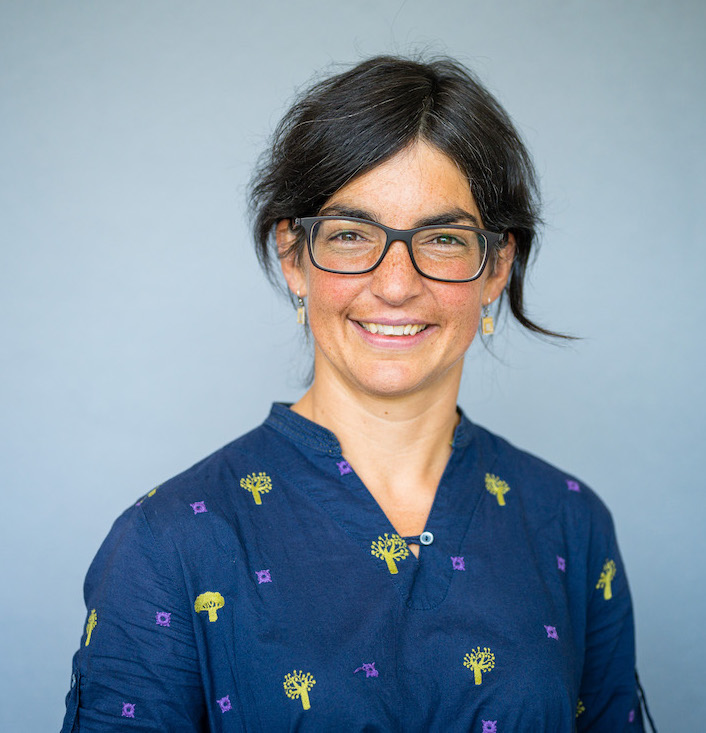 |
|
| Prof. Isabel Rozas, Trinity College Dublin, Ireland | Isabel Rozas is a Professor in Chemistry in Trinity College Dublin. Born and raised in Madrid (Spain), she studied in the Universidad Complutense de Madrid where she obtained a BSc and a PhD in Chemistry performing her investigations at the National Council of Research (CSIC, Madrid). She carried out post-doctoral research in the University of Saskatchewan and at Queen’s University in Kingston, later to join TCD in 2000. Her main area of research is framed within the Medicinal Chemistry field. Thus, her group works in the modelling, preparation and biological evaluation of compounds targeting nucleic acids as anticancer or antiprotozoal therapies, guanidine-based inhibitors of protein kinases, and compounds targeting adrenergic alpha2-adrenergic receptors with application in different neurological conditions. Recently, she has obtained Science Foundation Ireland funds to develop compounds as potential therapies for COVID-19. She has published 163 papers and, recently, one book and collaborates with several groups around the world. |
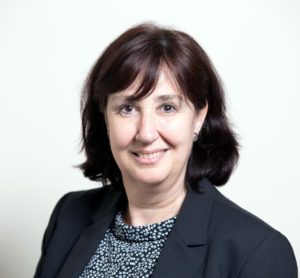 |
|
| Prof. Rebecca Deprez-Poulain, Université de Lille, France | Pr. Deprez-Poulain has an BS in chemistry (Juniata College, PA, USA 1995) an Engineer and a Master Degree (Lille, FR, 1996) in organic chemistry, and a PharmD (Ulille, FR, 2009). She did her PhD under the supervision of Pr Tartar (1996-1999) on combinatorial chemistry applied to lead discovery at the biotech CEREP.SA. She did her postdoc at both the Institut Pasteur de Lille and at the School of Pharmacy and was nominated assistant professor in General Chemistry in 2001 and is, since 2010, Full Professor of Medicinal Chemistry and Drug Discovery at the School of Pharmacy in Lille. Her research expertise is in the modulation of metalloproteases for therapeutic uses. Her team has contributed in the field by disclosing the first inhibitors of the malarial aminopeptidase PfAM1, the first exosite binders and the first catalytic-site inhibitor of Insulin Degrading Enzyme tested in vivo. and the first plasma-stability study of hydroxamates. Recently her team discovered the first selective ERAP2 inhibitors. Her recent research interests include the use of kinetic target guided synthesis to identify drug-like inhibitors of metalloenzymes. Since 2021, she coordinates the MSCA-ITN CAPSTONE dedicated on ERAP inhibitors in oncology and autoimmune diseases. She has published more than 60 papers in peer-reviewed international journals, among which J. Med. Chem, Nat. Comm, and is the inventor of several patents. Pr Deprez-Poulain has been awarded several Prizes like the joined French Society of Medicinal Chemistry & Servier Prize (2009) “Prix d’Encouragement à la la recherche” or the National Academy of Pharmacy “Michel Delalande Prize in Pharmacochemistry” (2020). Pr Deprez-Poulain has been nominated as a member of the Institut Universitaire de France for 5 years in 2015. She is also the creator of the mobile application “MedChemStructures Genius”, and the President of the French Medicinal Chemistry Society (2021-2022). |
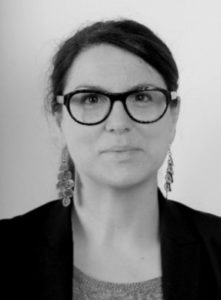 |
|
| Dr. Kurt Hoogewijs, NUI Galway, Ireland |
Kurt Hoogewijs is a Lecturer in Medicinal Chemistry and PI in the Apoptosis Research Centre at NUI Galway, as well as a Science Foundation Ireland funded investigator linked to the SFI research center CÚRAM. His research is focussed on peptides as drug molecules and RNA as novel drug targets, with a particular interest in mitochondrial diseases. This includes synthesis, quality control using HPLC, MS and NMR, and analysis of interactions using biophysical techniques. |
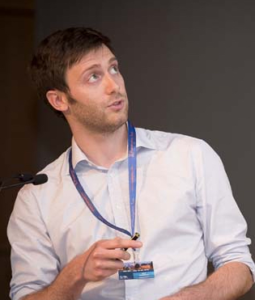 |
|
| Prof. Swen Hoelder, Institute of Cancer Research, UK |
Swen studied chemistry at the University of Muenster (Germany). He completed his PhD in organic chemistry at the Technical University in Berlin in the team of Professor S. Blechert. Following his PhD, Swen spent two years in the lab of Professor P.G. Schultz at the University of California, Berkeley establishing methods to identify novel enzymes through selection from large protein libraries. His Post-Doctoral research was supported by a Feodor Lynen Fellowship from the Alexander von Humboldt Foundation. Swen then joined the department of Medicinal Chemistry at Hoechst Marion Roussel (now Sanofi), a major pharmaceutical company, where he predominately worked on diabetes therapies. In addition, he led teams that were responsible for the creation of a kinase screening library and explored the application of Bio-NMR for kinase drug discovery. In 2005, Swen joined Altana (now Takeda) to work on cancer therapies, where he led a team of chemists that discovered two pre-clinical candidates. In October 2007, Swen joined the faculty of the ICR where his team has applied their medicinal chemistry experience to discover cancer drugs in the unique and collaborative environment of the ICR. In 2017, Swen was awarded a readership and in 2020 a professorship in Medicinal Chemistry and Drug Design. |
 |
|
| Prof. Christa Elisabeth Müller, University of Bonn, Germany |
Christa Müller studied pharmacy at the University of Tübingen, Germany, and received her Ph.D. in Pharmaceutical/Medicinal Chemistry from the same university. After a postdoctoral stay with John W. Daly (1989-1990 and 1992) in the Laboratory of Bioorganic Chemistry, National Institutes of Health, in Bethesda, Maryland, USA, she completed her habilitation thesis at the University of Tübingen in 1994, and became Associate Professor of Pharmaceutical Chemistry at Würzburg University in the same year. Since 1998 she is full professor of Pharmaceutical Chemistry at Bonn University and a founder of the Pharma-Center Bonn and the Bonn International Graduate School of Drug Sciences (BIGS DrugS). Her scientific interests are focused on the medicinal chemistry and molecular pharmacology of purine-binding membrane proteins (purine receptors, ectonucleotidases), orphan G protein-coupled receptors and G proteins, and coronavirus therapeutics. Disease indications include neurodegenerative and inflammatory diseases and cancer. She published ca. 500 scientific papers and patents in the field of medicinal chemistry and pharmacology. Among other awards, she received the Nauta Pharmacochemistry Award for Medicinal Chemistry and Chemical Biology by the European Federation of Medicinal Chemistry (EFMC) in 2018. Since 2021, she acts as Editor-in-Chief of ACS Pharmacology & Translationals Science. |
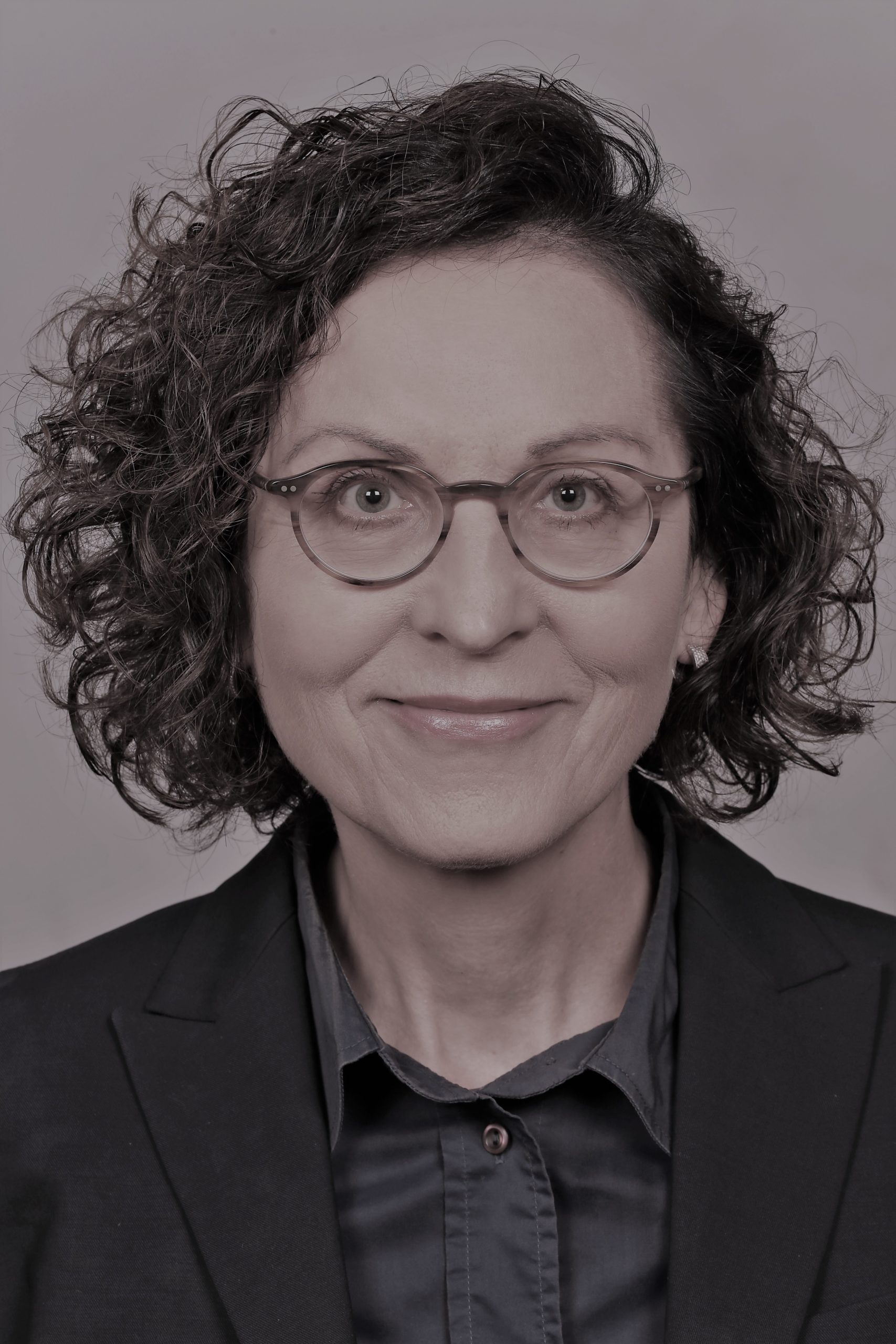 |
|